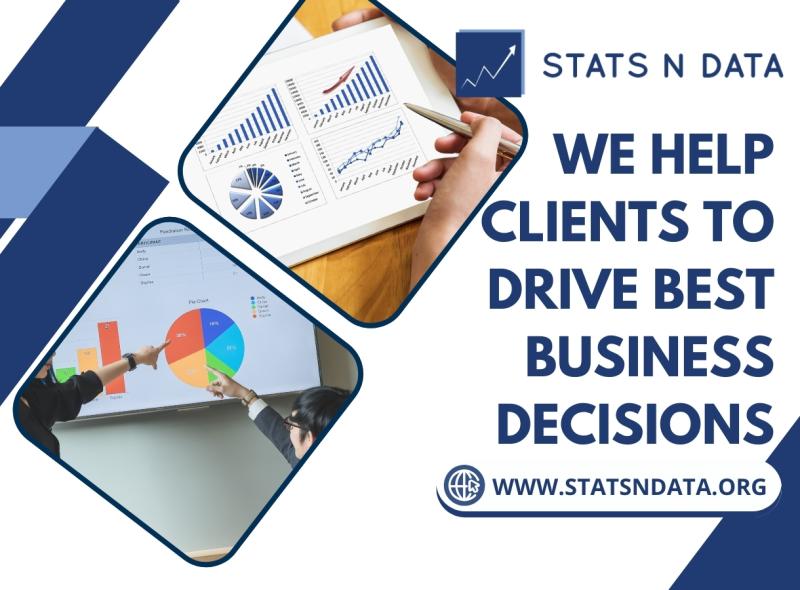
Blockchain Gaming Market
The blockchain gaming market is experiencing rapid growth and is projected to expand significantly in the coming years. With the integration of blockchain technology into gaming, players can enjoy unique benefits such as true ownership of in-game assets, decentralized economies, and enhanced transparency. The market is expected to grow at a compound annual growth rate (CAGR) of 68.30% from 2025 to 2032. This remarkable growth is driven by the increasing popularity of play-to-earn models, where gamers can generate real-world value from their gameplay. The concept of owning digital assets through non-fungible tokens (NFTs) further enhances the appeal of blockchain gaming, allowing players to buy, sell, and trade their in-game items in a secure manner.
As the gaming industry evolves, the incorporation of blockchain technology is likely to redefine the gaming experience. Developers are increasingly recognizing the potential of decentralized platforms to create immersive worlds and engaging gameplay mechanics. The market is expected to surpass a valuation of several billion dollars by 2032 as more players and investors engage with blockchain-based games. The growing interest in digital currencies, coupled with advancements in gaming technology and infrastructure, is expected to foster a vibrant ecosystem that attracts a diverse audience. This transformation not only represents a shift in how games are developed and played but also signifies a broader acceptance of blockchain technology across various sectors. Overall, the blockchain gaming market is poised for substantial growth, promising exciting developments for both gamers and developers alike.
You can access a sample PDF report here: https://www.statsndata.org/download-sample.php?id=37219
The blockchain gaming market has emerged as a revolutionary sector within the broader gaming industry, harnessing the power of blockchain technology to create decentralized gaming experiences that empower players. This innovative fusion of gaming and cryptocurrency has enabled the rise of play-to-earn (P2E) models, where gamers can earn real-world rewards through their in-game achievements. The market has seen substantial growth, driven by advancements in blockchain technology, increased adoption of gaming cryptocurrencies, and the burgeoning interest in NFTs (Non-Fungible Tokens).
In recent months, the blockchain gaming sector has experienced a significant boost due to strategic partnerships among leading game developers, platforms, and blockchain networks. These collaborations have led to the development of unique Web3 games that leverage the metaverse, providing players with immersive experiences that blend gaming with social interactions and digital asset ownership. Executives, investors, and decision-makers in the gaming industry are recognizing the potential of blockchain gaming, making it essential to understand its trajectory, opportunities, and challenges.
As the gaming landscape evolves, it is crucial for stakeholders to keep abreast of market trends and technological advancements. The integration of decentralized gaming models not only enhances player engagement but also introduces new revenue streams and monetization opportunities. With the Market growing exponentially, understanding how to navigate this new terrain can position companies for long-term success.
Key Growth Drivers and Trends
Several key drivers are propelling the growth of blockchain gaming. The shift towards sustainability and digitization is reshaping consumer expectations, with players seeking more engaging experiences that offer tangible rewards. The play-to-earn model, in particular, has gained traction, allowing users to earn cryptocurrencies and other digital assets through gameplay. This model has transformed traditional gaming paradigms, creating a dynamic ecosystem where players can monetize their time and skills.
Emerging technologies, including artificial intelligence (AI) and virtual reality (VR), are further enhancing blockchain gaming experiences. AI is being integrated into game development, providing personalized gameplay experiences and adaptive challenges that keep players engaged. Meanwhile, virtual reality gaming is creating immersive environments where players can explore vast digital landscapes, interact with other users, and conduct transactions using cryptocurrencies.
Moreover, the impact of NFTs on the gaming industry cannot be overstated. NFTs have introduced a new dimension to digital asset ownership, allowing players to buy, sell, and trade in-game items securely. As the market continues to mature, the role of smart contracts in gaming is becoming increasingly significant, enabling developers to create transparent and secure transactions within their games. The focus on community-building around blockchain games is also gaining momentum, as players seek to connect and collaborate with others in the decentralized gaming ecosystem.
Market Segmentation
The blockchain gaming market can be segmented into various categories based on game type and application. This segmentation allows for a clearer understanding of market dynamics and player preferences.
Segment by Type:
– Role Playing Games (RPGs): These games allow players to immerse themselves in rich narratives and complex character development, often featuring extensive worlds for exploration.
– Open World Games: Players are given the freedom to explore vast environments, completing quests at their own pace while interacting with other players.
– Collectible Games: These games revolve around collecting unique items, characters, or cards, often utilizing NFTs for ownership and trade.
Segment by Application:
– ETH (Ethereum): The leading blockchain platform for decentralized applications and NFT integration, Ethereum is home to many blockchain games.
– BNB Chain: Known for its low transaction fees, BNB Chain is becoming a popular choice for developers looking to launch blockchain games.
– Polygon: This Layer 2 scaling solution for Ethereum provides faster transactions and lower costs, attracting game developers to its ecosystem.
Understanding these segments is vital for stakeholders looking to capitalize on the burgeoning blockchain gaming market. By focusing on specific game types and applications, industry players can tailor their offerings to meet the evolving demands of gamers.
Competitive Landscape
The competitive landscape of blockchain gaming is diverse, with several key players driving innovation and growth in the sector. Each of these companies is making strides in game development, expanding their offerings, and forming strategic partnerships to enhance their market presence.
– Sky Mavis (Vietnam): Known for the popular game Axie Infinity, Sky Mavis has transformed the way players engage with blockchain gaming, creating a vibrant ecosystem for earning and trading in-game assets.
– Splinterlands: This collectible trading card game leverages blockchain technology to allow players to own and trade their cards securely, appealing to both gamers and investors.
– Animoca Brands: A leader in digital entertainment, Animoca Brands is focused on creating engaging experiences that incorporate NFTs and blockchain technology across various gaming platforms.
– Wemade: The company is expanding its portfolio of blockchain games, focusing on integrating real-world economies with virtual gaming experiences.
– Dapper Labs (Canada): As the creator of NBA Top Shot, Dapper Labs is pioneering the use of NFTs in gaming, enabling players to buy, sell, and trade officially licensed digital collectibles.
– Immutable: Focused on creating a platform for NFT gaming, Immutable is enhancing the player experience while providing developers with the tools needed to build scalable games.
– Uplandme: This virtual property trading game utilizes blockchain technology to create a unique economic model, allowing players to buy and sell virtual real estate.
– AlwaysGeeky Games (Canada): This company is dedicated to developing engaging blockchain games that emphasize community involvement and player-driven economies.
– Decentraland Foundation: As a decentralized virtual world, Decentraland allows players to create, experience, and monetize content and applications, further blurring the lines between gaming and the metaverse.
– Mythical Games: Focusing on player-owned economies, Mythical Games is developing blockchain games that allow players to control their in-game assets.
– Illuvium: This open-world RPG features NFT creatures that players can capture and trade, emphasizing the intersection of gaming and digital asset ownership.
– Sorare: A fantasy football game that allows players to buy, sell, and trade officially licensed player cards as NFTs, creating a new way for fans to engage with their favorite teams.
– PopCap Games: Known for casual games, PopCap is exploring blockchain integration to enhance player engagement and monetization strategies.
– G.JIT Japan: This company is focused on creating unique gaming experiences that integrate blockchain technology to deliver real ownership of in-game assets.
– Double Jump.Tokyo: A pioneer in NFT gaming, Double Jump.Tokyo is developing unique games that allow players to trade and collect digital assets.
– Gala Games: This platform focuses on empowering players through true ownership of in-game assets, creating a decentralized gaming ecosystem.
– Lucid Sight: Specializing in blockchain games, Lucid Sight is developing experiences that leverage digital ownership and player economies.
– Rokosoft (Istanbul): An emerging player in the blockchain gaming space, Rokosoft is exploring innovative game concepts that integrate blockchain technology.
– Horizon Blockchain Games (Canada): This company is dedicated to creating blockchain-based games that focus on player ownership and community engagement.
– Xaya (Malta): Known for its decentralized gaming technology, Xaya is creating games that allow for true ownership of in-game assets.
– Planetarium: A blockchain-based platform that focuses on building decentralized games that emphasize player-driven economies.
– Binamon (Argentina): This company is developing a blockchain-based game that combines elements of traditional gaming with NFT trading.
– Codebit Labs: Focused on creating innovative blockchain games, Codebit Labs is exploring new gameplay mechanics that leverage blockchain technology.
These players are shaping the future of blockchain gaming, introducing innovative concepts and expanding the possibilities for players and developers alike.
Opportunities and Challenges
The blockchain gaming market presents a plethora of opportunities for growth and innovation. Untapped niches, such as educational gaming and social impact games, are emerging as potential avenues for monetization. As more players enter the space, understanding evolving buyer personas will be crucial for developers looking to create engaging experiences that resonate with their audience.
However, the market is not without its challenges. Regulatory hurdles remain a significant concern, as governments around the world grapple with how to regulate blockchain technology and cryptocurrencies. Developers must navigate these regulations while ensuring compliance to maintain player trust.
Supply chain gaps can also pose challenges, particularly as the demand for blockchain gaming increases. Finding reliable partners for game development, distribution, and marketing is essential for success in this competitive landscape. Practical solutions include forming partnerships with established players in the industry and investing in community-building efforts to foster player loyalty.
To capitalize on the opportunities within the blockchain gaming market, stakeholders must remain agile and adaptable, continuously exploring new trends and technologies. By understanding the landscape and addressing challenges head-on, companies can position themselves for sustainable growth in this dynamic sector.
Technological Advancements
The blockchain gaming industry is at the forefront of technological advancements, with cutting-edge tools and techniques transforming the way games are developed and played. Artificial intelligence (AI) is being increasingly integrated into game design, allowing for personalized gameplay experiences that adapt to individual player preferences. This not only enhances engagement but also creates dynamic game environments that evolve over time.
Digital twins, a technology that creates virtual replicas of real-world entities, are being utilized to enhance game development and design processes. By simulating real-world scenarios within a digital space, developers can analyze gameplay mechanics and optimize experiences before launch.
The Internet of Things (IoT) is also making its mark on the gaming industry, enabling interconnected devices to interact with games in real time. This integration creates new gameplay possibilities, allowing players to engage with their favorite titles beyond traditional gaming consoles.
Virtual reality (VR) is revolutionizing immersive gaming experiences, allowing players to fully engage with digital worlds in ways never before possible. As VR technology continues to evolve, it is expected to play a significant role in the future of blockchain gaming, providing players with unique and engaging environments.
Blockchain technology itself is the backbone of this industry, enabling secure transactions, ownership of digital assets, and transparent gameplay mechanics. As the market matures, the integration of blockchain technology into game development processes will become increasingly streamlined, allowing developers to focus on creating innovative experiences.
Research Methodology and Insights
STATS N DATA employs a rigorous research methodology to provide robust insights into the blockchain gaming market. Utilizing both top-down and bottom-up approaches, our analysts gather data from a variety of sources, including industry reports, market analyses, and primary research with key stakeholders.
Our comprehensive data collection process includes primary and secondary research, ensuring that our insights are well-rounded and accurate. We conduct interviews with industry experts, analyze trends in player behavior, and monitor developments in blockchain technology to deliver actionable insights for our clients.
Multi-layer triangulation is a key component of our methodology, allowing us to validate our findings and provide reliable forecasts for the blockchain gaming market. By combining quantitative data with qualitative insights, STATS N DATA positions itself as a trusted authority in the rapidly evolving landscape of blockchain gaming.
The blockchain gaming market is poised for significant growth, driven by technological advancements, changing consumer preferences, and the integration of cryptocurrencies and NFTs. As the landscape continues to evolve, stakeholders must remain vigilant and adaptable, leveraging opportunities while addressing challenges head-on.
STATS N DATA is committed to providing valuable insights and analysis to help executives, investors, and decision-makers navigate this dynamic market. By understanding the intricacies of blockchain gaming and its potential, stakeholders can capitalize on the opportunities that lie ahead and shape the future of gaming.
Get 30% Discount On Full Report: https://www.statsndata.org/ask-for-discount.php?id=37219
In the rapidly evolving landscape of the gaming industry, a significant challenge confronted one of the leading players in the market. This key player, renowned for its immersive gaming experiences, found itself grappling with a growing dissatisfaction among its community of players. Despite offering captivating narratives and stunning graphics, engagement levels were steadily declining. Players began to voice concerns regarding the lack of transparency and ownership in their virtual experiences. The traditional gaming model, which often limited players’ abilities to trade or sell in-game assets, was increasingly seen as outdated. This disconnect not only threatened the loyalty of the existing player base but also risked the potential to attract new gamers who were becoming more informed and discerning about their digital interactions. The situation called for a radical transformation, one that could bridge the gap between player expectations and the existing gaming paradigm.
In response to this pressing challenge, a comprehensive analysis was commissioned to explore innovative solutions within the blockchain gaming market. Utilizing advanced data analytics, experts delved into player behavior, market trends, and the technological capabilities that blockchain could offer. This analysis revealed a groundbreaking strategy that focused on integrating blockchain technology into the gaming ecosystem. By allowing players to truly own their in-game assets through non-fungible tokens (NFTs), the key player could create a transparent marketplace where players could trade, sell, or enhance their items without restrictions. Furthermore, the analysis identified emerging trends in decentralized finance and community-driven governance, suggesting that players could have a voice in the development of future content and features. This strategy not only aimed to revitalize player engagement but also sought to create a new economy within the gaming world, driven by player ownership and participation.
The implementation of this innovative strategy yielded remarkable results, transforming the landscape of the key player’s gaming offerings. Within months, player engagement surged, with active user numbers increasing by over 150 percent. The introduction of blockchain-enabled assets allowed for a vibrant marketplace; players were not only enjoying their gaming experiences but also actively participating in buying, selling, and trading their unique digital items. This shift led to a notable increase in market share, with the key player capturing a significant portion of the blockchain gaming segment, which was rapidly expanding. Revenue also saw a dramatic boost, with in-game purchases rising by 200 percent as players embraced the newfound ability to invest in and profit from their gameplay. Overall, the strategic pivot towards blockchain technology not only addressed the initial concerns of player ownership and engagement but also positioned the key player as a leader in the burgeoning blockchain gaming market, paving the way for a future where players and developers could thrive together in a more equitable digital economy.
For customization requests, please visit: https://www.statsndata.org/request-customization.php?id=37219
Q: What is blockchain gaming?
A: Blockchain gaming refers to video games that utilize blockchain technology to manage in-game assets, provide unique ownership of items, and facilitate decentralized gameplay. In these games, players can own their in-game assets as non-fungible tokens (NFTs), which are stored on a blockchain. This ensures the uniqueness and ownership of items, as they cannot be duplicated or taken away by game developers. Blockchain gaming also allows players to trade or sell their assets in a decentralized marketplace, creating a new economy around gaming.
Q: How do I earn from play to earn games?
A: Play-to-earn games provide opportunities for players to earn real-world value through their in-game activities. Players can earn rewards in the form of cryptocurrencies or NFTs by completing tasks, winning battles, or contributing to the game ecosystem. These assets can often be sold on secondary markets for real money. Some play-to-earn games also offer token rewards that can be traded on cryptocurrency exchanges, allowing players to convert their in-game achievements into cash. To maximize earnings, players should select games with strong economies and active communities.
Q: What are the advantages of NFT gaming?
A: NFT gaming offers several advantages, including true ownership of in-game assets. Unlike traditional games where items are controlled by the developers, NFTs allow players to own, trade, and sell their assets freely. This creates a player-driven economy where the value of items can appreciate over time. Additionally, NFT gaming enhances transparency and security, as all transactions are recorded on the blockchain. Players can also participate in governance decisions, influencing the development and direction of the game. This degree of involvement fosters a stronger community and engagement among players.
Q: How does decentralized gaming work?
A: Decentralized gaming operates on blockchain networks, removing the need for a central authority to manage the game. In this model, the game’s code and assets are stored on a blockchain, and players interact with the game through smart contracts. This ensures that no single entity can manipulate the game or its economy, providing an open and fair environment for all players. Players can also participate in the governance of the game, voting on updates, features, and other significant changes. Decentralization fosters community-driven development and enhances player trust.
Q: What is the metaverse in gaming?
A: The metaverse in gaming refers to a collective virtual shared space that encompasses multiple interconnected virtual worlds and experiences. It allows players to interact with each other and engage in various activities across different games and environments. The metaverse combines augmented reality, virtual reality, and blockchain technology to create immersive experiences. In this space, players can socialize, participate in events, create content, and trade assets. The concept of the metaverse is seen as the next evolution of the internet, where gaming plays a crucial role in shaping digital interactions.
Q: Can I make money with blockchain games?
A: Yes, you can make money with blockchain games through various mechanisms. By participating in play-to-earn models, players can earn cryptocurrencies and NFTs that have real-world value. Many games reward players with tokens for completing quests, battling others, or contributing to the game ecosystem. These tokens can be traded on exchanges or sold in marketplaces. Additionally, some players invest in in-game assets, which may appreciate over time, allowing for profitable trades. However, the profitability of blockchain games can vary greatly, and success often depends on market conditions and player engagement.
Q: What are the risks of investing in crypto games?
A: Investing in crypto games carries several risks. The volatility of cryptocurrency markets can lead to significant financial losses. Additionally, the gaming landscape is still evolving, and many projects may not be viable long-term, leading to potential losses on investments. There is also the risk of fraud and fraudulent projects, which are prevalent in the crypto space. Furthermore, regulatory uncertainties may impact the legality and operation of blockchain games. Investors should conduct thorough research and consider their risk tolerance before investing in crypto games.
Q: How are blockchain and gaming connected?
A: Blockchain and gaming are connected through the use of decentralized technology to create secure, transparent, and player-driven gaming experiences. Blockchain enables true ownership of in-game assets through NFTs, allowing players to have control over their items. It also facilitates peer-to-peer transactions without intermediaries, enhancing the trading and selling of assets. Additionally, blockchain technology allows for the creation of decentralized autonomous organizations (DAOs) within games, enabling players to participate in governance and decision-making processes. This connection fosters innovative game designs and new economic models in the gaming industry.
Q: What future trends should I watch in blockchain gaming?
A: Future trends in blockchain gaming include the continued rise of play-to-earn models, which will attract more players looking to monetize their gaming experiences. The integration of virtual reality and augmented reality with blockchain technology is expected to create more immersive gaming experiences. Additionally, the development of cross-platform interoperability will allow players to use their assets across different games and platforms seamlessly. The emergence of more robust decentralized finance (DeFi) elements within games, such as lending and staking mechanisms, will also shape the future of blockchain gaming. Lastly, regulatory developments will play a crucial role in defining the landscape of blockchain gaming.
Q: How do I choose the best blockchain games to play?
A: To choose the best blockchain games, consider factors such as the game’s mechanics, community engagement, and economic model. Research the development team behind the game to assess their credibility and experience in the industry. Look for games with active player communities, as this can indicate a healthy ecosystem. Additionally, evaluate the potential for earning through play-to-earn mechanics and the overall sustainability of the game’s economy. Checking reviews and gameplay videos can also provide insights into the game’s quality and enjoyability.
Q: What makes play to earn games popular?
A: Play-to-earn games have gained popularity due to their ability to provide real-world value for players’ time and effort. Unlike traditional games, where players invest without financial return, play-to-earn models allow players to earn money while playing. This economic incentive attracts a diverse audience, including those who may not have previously engaged in gaming. The community aspect of these games, where players can collaborate and compete, further enhances their appeal. Additionally, the novelty of owning unique digital assets as NFTs adds a layer of excitement and investment potential for players.
Q: How does blockchain prevent cheating in games?
A: Blockchain technology helps prevent cheating in games by providing a transparent and immutable ledger of all in-game transactions and interactions. Since all actions are recorded on the blockchain, it becomes difficult for players to manipulate game outcomes or duplicate assets. Smart contracts can enforce game rules automatically, ensuring fair play without the need for a central authority. Additionally, the decentralized nature of blockchain means that no single entity can alter the game to favor certain players, creating a more equitable environment for all participants.
Q: What types of games can be developed on blockchain?
A: A wide variety of games can be developed on blockchain technology, ranging from simple casual games to complex multiplayer experiences. Popular genres include collectible card games, strategy games, role-playing games (RPGs), and virtual worlds. Games that incorporate play-to-earn mechanics, where players can earn and trade assets, are particularly common. Additionally, games that focus on social interaction and community building, such as virtual worlds and metaverse environments, are also being developed on blockchain. The adaptability of blockchain allows for innovative game designs that leverage unique ownership and decentralized economies.
Q: How can I trade my in-game assets safely?
A: To trade in-game assets safely, use reputable marketplaces that specialize in blockchain gaming. Verify the platform’s security measures and user reviews to ensure it is trustworthy. When trading, always ensure you are dealing with legitimate buyers or sellers and be cautious of offers that seem too good to be true. It is advisable to use escrow services when trading high-value assets to protect both parties. Additionally, keep your digital wallets secure by enabling two-factor authentication and using hardware wallets for added security.
Q: What role do cryptocurrencies play in gaming?
A: Cryptocurrencies play a crucial role in gaming by enabling decentralized transactions and facilitating the ownership of in-game assets. They serve as the medium of exchange within blockchain games, allowing players to buy, sell, and trade items easily. Cryptocurrencies can also be used for staking, lending, and participating in governance decisions within games. Furthermore, they provide a means for developers to raise funds through initial coin offerings (ICOs) or token sales, allowing for the development of new gaming projects. Overall, cryptocurrencies enhance the economic dynamics of blockchain gaming.
Q: How will blockchain change game development?
A: Blockchain technology is poised to change game development by introducing new economic models and player engagement strategies. Developers can create games that empower players with true ownership of assets, leading to increased player investment and loyalty. The ability to implement decentralized governance allows communities to influence game development directly. Additionally, the integration of blockchain can streamline processes such as monetization, distribution, and updates, reducing reliance on traditional publishing routes. Overall, blockchain fosters innovation in game design, allowing for more immersive and player-centered experiences.
Q: Why are NFTs important for gamers?
A: NFTs are important for gamers because they provide a mechanism for true ownership of in-game assets. Unlike traditional games, where players do not have control over their items, NFTs allow players to own, trade, or sell their assets freely. This creates a sense of investment and value for players, as their hard work can translate into real-world rewards. NFTs also enhance the gaming experience by allowing for unique collectibles, skins, and characters that can appreciate over time. Furthermore, they enable players to participate in the creation of a vibrant, player-driven economy.
Q: What are the challenges in blockchain gaming?
A: Blockchain gaming faces several challenges, including the scalability of blockchain networks, which can limit the number of players and transactions that can be processed simultaneously. High transaction fees on some blockchains can deter players from engaging with games. Regulatory uncertainties also pose challenges, as governments may impose restrictions on crypto-related activities. Additionally, the space is still relatively new, leading to a lack of established standards and best practices. Finally, educating players about blockchain technology and its implications remains a hurdle for widespread adoption.
Q: How do I start a career in blockchain game development?
A: To start a career in blockchain game development, begin by gaining a solid understanding of both game design and blockchain technology. Familiarize yourself with programming languages commonly used in game development, such as C# and C++, as well as languages used for smart contracts, like Solidity. Building a portfolio of projects, including small games or contributions to open-source blockchain projects, can showcase your skills. Networking with professionals in the industry and participating in gaming and blockchain communities can provide valuable connections and opportunities. Finally, consider pursuing further education or certifications related to blockchain technology and game development.
Q: What is the community like in blockchain gaming?
A: The community in blockchain gaming is often vibrant and engaged, comprising players, developers, and investors. Many blockchain games have active online communities on platforms like Discord, Telegram, and social media, where players discuss strategies, share experiences, and collaborate on in-game activities. The decentralized nature of these games fosters a sense of ownership and involvement among players, who often participate in governance and decision-making processes. Additionally, the community is typically supportive, with many players willing to assist newcomers in understanding the complexities of blockchain technology and gaming. Overall, the community plays a crucial role in the success and sustainability of blockchain games.
Related Reports:
Junior Bikes Market
https://www.statsndata.org/report/junior-bikes-market-260767
Ultrasonic Metal Welder Market
https://www.statsndata.org/report/ultrasonic-metal-welder-market-9054
Bisphenol A(BPA)-Free Thermal Paper Market
https://www.statsndata.org/report/bisphenol-abpa-free-thermal-paper-market-138610
Human Whole Blood Market
https://www.statsndata.org/report/human-whole-blood-market-159854
Slippery Course Doors Market
https://www.statsndata.org/report/slippery-course-doors-market-138579
John Jones
Sales & Marketing Head | Stats N Data
Email: sales@statsndata.org
Website: www.statsndata.org
STATS N DATA is a trusted provider of industry intelligence and market research, delivering actionable insights to businesses across diverse sectors. We specialize in helping organizations navigate complex markets with advanced analytics, detailed market segmentation, and strategic guidance. Our expertise spans industries including technology, healthcare, telecommunications, energy, food & beverages, and more.
Committed to accuracy and innovation, we provide tailored reports that empower clients to make informed decisions, identify emerging opportunities, and achieve sustainable growth. Our team of skilled analysts leverages cutting-edge methodologies to ensure every report addresses the unique challenges of our clients.
At STATS N DATA, we transform data into knowledge and insights into success. Partner with us to gain a competitive edge in today’s fast-paced business environment. For more information, visit https://www.statsndata.org or contact us today at sales@statsndata.org
This release was published on openPR.








































































